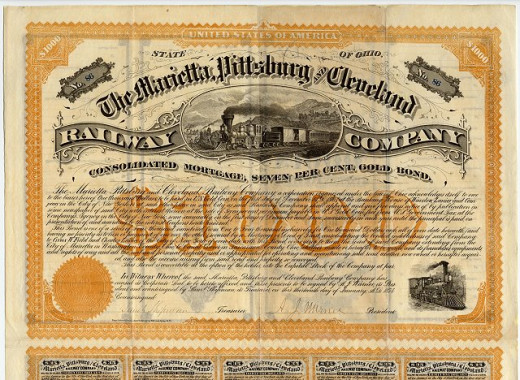What is a Bond Call? Different Types of Early Redemptions

Callable or Redeemable Bonds
Some people who have purchased bonds for the first time are dumbfounded when they receive a letter in the mail that tells them that their bond has been called for early redemption. They purchased the bond that matures a long time in the future, maybe even 30 years from now, and hoped to keep it until maturity. They planned to live off of their interest. What happened? Why and how can bonds be called before their maturity date?
Unfortunately, there is nothing they or you can do to avoid the redemption. Interest will stop accruing after the redemption date, so holding on to your certificate, if you have one, will not help you. Turn in your certificate, or expect your bonds to be turned into cash, if your bonds are book entry.
What is a bond call?
A bond call is when an issuer calls in the bond early for redemption. The issuer asks you to turn in your bond for payment. You will receive interest up to the date of the bond call, but your bond will no longer accrue any interest after that date. Most corporate and municipal bonds have bond call provisions, but treasury bonds do not.
Since you will now have cash to invest, you will want to keep the possibility of bond calls in mind the next time you buy a bond, and research its bond call provisions thoroughly. You want to find out whether the bonds are callable or redeemable, when you can expect these calls, and the types of conditions that can invoke a bond call. Because you don't know for certain when or whether your bond will be called early, they tend to earn a higher return than non-callable bonds. Of course, you take the chance that you may not be able to reinvest your money at an attractive rate at the time your bond is called.
There are several different types of early redemptions, and this article will explain the most common ones.

Sinking Fund Redemption
In order to keep the amortization of the bond issue on an even schedule, the issuer may want to pay the principal on a regular basis. Sometimes this is accomplished by issuing bonds with different maturity dates. For example, if the issuer wants to spread out the payments on a $50,000,000 bond issue, they may choose to divide it into smaller sets that mature every year until the final maturity date.
Sometimes though, they can get more interest from bond buyers if they issue bonds that mature later, and set up a sinking fund schedule so that a certain amount is paid each year by calling the bonds that are maturing in a certain year. In this way, the bond buyers are taking the chance that they may be able to hold on to their bonds longer.
For example, $7,000,000 worth of bonds is maturing in July 1, 2026. A sinking fund schedule is set up, so that bonds are called semiannually. On January 1, 2025, $1,000,000 bonds are subject to the sinking fund, so that amount of bonds will be randomly selected from all of the bonds that are maturing on July 1, 2026.
A sinking fund redemption is a mandatory redemption, because the governing document, the bond indenture, requires the bonds to be called.
Sinking Fund Example
Maturity
| Sinking Fund
| |
|---|---|---|
January 1, 2025
| 1,000,000
| |
July 1, 2025
| 1,500,000
| |
January 1, 2026
| 2,000,000
| |
July 1, 2026
| 2,500,000
|
Pre-Payment Redemption
Some bond issues have a pool of collateral that backs up the bonds. For example, the money from the bondholders of mortgage bonds gets used to buy mortgages. When a borrower prepays his mortgage loan, refinances, or gets foreclosed, the pool now has cash instead of the mortgage as collateral. This money is used to prepay the bonds, so that balance between the pool of mortgages and the pool of bonds remains relatively even.
These prepayment calls will occur on a schedule, January 1 and July 1, as in our example, but the amount can vary significantly from one period to the next. The amount of the prepayment is usually divided proportionally among all the different maturity dates of the bonds, if there is more than one maturity date, and then that amount of bonds are randomly selected from each pool.
A prepayment redemption is a mandatory redemption because the Bond Indenture, the governing document, requires the bonds to be called.
SEC on Callable Bonds
- Bonds, Callable or Redeemable
This site warns you to be careful when buying callable bonds at a premium, especially near a call date, because your bond may be subject to redemption.
Optional Redemption
An optional redemption is the right of the issuer to prepay their loan. Remember that a bond is a loan, and issuers will want as much flexibility as they can get to prepay their loan. They want to be able to refinance if interest rates go down, pay off the loan if the business is doing really well, or for a variety of other reasons.
The provisions of the bond issue will generally have a time period when the issuer is not permitted to call bonds. Later, they may be able to call the bonds, but be required to pay a premium to the bondholders. Even later, they will be able to call the bonds at the face value.
Usually, when an issuer calls bonds for optional redemptions, they will call all of the bonds at the same time.
Example of Optional Redemption
Redemption Date
| Price
|
|---|---|
January 1, 2020
| 103%
|
January 1, 2021
| 102%
|
January 1, 2022
| 101%
|
January 1, 2023
| 100%
|

Extraordinary Redemption
There are certain times when bonds have to be called for some other reason. This usually happens when something extraordinary and catastrophic happens. For example, if the underlying property is burned down, the insurance proceeds will be used to pay off the bonds. Because the event cannot be anticipated, bonds can be callable for extraordinary redemption on any date, and not just on the regular payment dates. Even though the bonds in the examples in this article pay principal and interest on January 1 and July 1, the bonds can be called on August 17, or any other date.
Bond Calls
Unless you are short on cash, getting a bond call notice can be pretty disappointing, especially since you will now be required to take the time to find something else to invest in, and possibly not be able to find one that pays as high a rate you were receiving on your bond. Of course, the market conditions could be that you could receive a better rate as well.
By learning about the different bond call provisions of the bonds that you buy, you will not be caught off guard, and will know what to expect from your investment.








